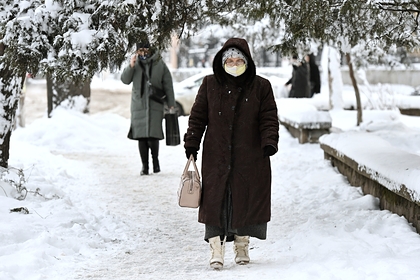The World Meteorological Organization (WMO), a specialized agency of the United Nations, has found no evidence that weather conditions significantly affect the rate at which the coronavirus spreads. The corresponding conclusion is contained in the report of scientists, reports TASS.
They recalled that respiratory diseases are often seasonal, especially in temperate climates. This fact fueled expectations that COVID-19 would be largely a seasonal illness. However, it turned out that in 2020, the dynamics of the spread of the disease depended more on measures taken by governments than on meteorological factors.
Experts stressed that there is no evidence yet that the direct meteorological impact on the virus significantly affects the level of its transmission in real conditions in the world. There is also no confirmation of information on the effect of air pollution on the viability of the virus.
Nevertheless, the co-chair of the group of experts who worked on the report, Ben Zaitchik, urged the heads of state located in the Northern Hemisphere not to relax the restrictive measures due to the rise in temperature. “We saw in the first year of the pandemic that the waves of infection intensify during the warmer seasons, and there is nothing to suggest that this cannot happen again this year,” he concluded.
Scientists from different countries have published conflicting studies on the impact of weather on the coronavirus pandemic. For example, the University of Maryland School of Medicine mapped the relationship of infection with the weather in various regions of the world and compared the weather conditions in eight cities where the coronavirus was widespread with 42 cities where the incidence of COVID-19 was very low. In the regions where the virus spread most actively during the first wave of the pandemic, there were similar weather conditions: temperatures from 3 to 9 degrees and low humidity.
At the same time, Canadian scientists said that the end of the coronavirus pandemic could not be attributed to the onset of summer weather. Experts have checked the common myth that with the onset of hot weather, the SARS-CoV-2 virus will be less active and the pandemic will stop. The results of the study did not show any connection between the onset of summer in the northern hemisphere of the Earth and the end of the pandemic crisis.

